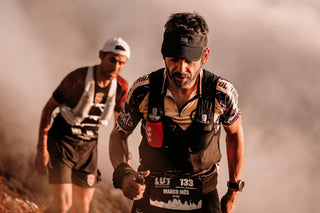Preparing for an ultra-marathon requires more than just physical endurance; it demands a well-thought-out strategy that combines meticulous planning, mental resilience, and a tailored approach to nutrition and pacing. With distances starting at 50 kilometers and sometimes exceeding 100 kilometers, the strategy you employ will determine whether you finish strong or hit an early wall. Here’s how to approach the daunting challenge of an ultra-marathon strategically.
1. Building a Solid Training Base
The foundation of any ultra-marathon strategy is a strong training base. Unlike marathons, where speed may take precedence, ultra-marathons demand long hours on your feet. Focus on time spent running rather than distance alone. Running multiple long runs back-to-back, including back-to-back long runs on weekends, will prepare your body for the extended time on the trail.
A key element in ultra training is building endurance without overtraining. Incorporating cross-training activities like cycling, swimming, or strength training helps to avoid overuse injuries. This is especially important since ultra races take a toll on muscles, joints, and connective tissue. Don’t neglect rest days, as recovery is critical to avoiding burnout.
2. Perfecting Nutrition and Hydration
Nutrition is often cited as the "fourth discipline" of ultra-marathons. Since the race lasts for hours or even days, your body will deplete its glycogen stores long before you finish. Developing an individualized nutrition strategy is essential, starting well before race day.
A typical plan includes a combination of carbohydrates, fats, and electrolytes consumed in small amounts every 30-45 minutes. Practicing with different types of nutrition—gels, bars, real food like bananas or peanut butter sandwiches—during long runs will help you understand what your body can tolerate. Similarly, hydration should be monitored closely. Keep in mind that hydration needs vary with the weather, your sweat rate, and the race terrain.
It’s not just about how much you consume but also the timing. Some runners prefer liquid nutrition, while others swear by solid foods. Trial and error during training will help determine what works best for you.
3. Pacing: The Art of Patience
One of the biggest mistakes new ultra runners make is starting out too fast. While the adrenaline at the start line might make you feel invincible, conserving energy in the first half is crucial. Successful ultra runners often adopt a “run-walk” strategy, walking steep uphills to save energy and running the flats and downhills.
A pacing strategy should be conservative. Since ultra-marathons often take place on trails with varying terrain, your pace will naturally fluctuate. Focus on maintaining a consistent effort level, rather than a specific pace, especially on challenging courses with elevation changes. Keep in mind that your muscles will tire significantly after several hours, so any speed gained early on by pushing too hard may backfire.
4. Mental Preparation and Strategy
Running an ultra-marathon is just as much a mental challenge as it is a physical one. Mental preparation should start during your training, where you’ll inevitably encounter discomfort, fatigue, and moments of doubt. Use these experiences as opportunities to train your mind to push through.
Break the race into smaller sections. Thinking of the race as "20 miles to aid station 1," then "15 miles to the next checkpoint," can make the distance feel more manageable. Setting mini-goals helps distract from the enormity of the race and gives your brain something positive to focus on.
5. Adaptability on Race Day
Even with a perfect strategy, ultra-marathons are unpredictable. Be ready to adapt to changing weather, unforeseen physical issues, or unexpected course challenges. Flexibility and problem-solving on the go can make or break your race. Whether it's adjusting your pace, switching up nutrition, or dealing with blisters, successful ultra runners learn to troubleshoot and adapt.
In conclusion, ultra-marathon strategy is a blend of preparation, pacing, nutrition, and mental resilience. By developing a thoughtful and flexible approach, you'll give yourself the best chance of not only finishing but also enjoying the journey.




